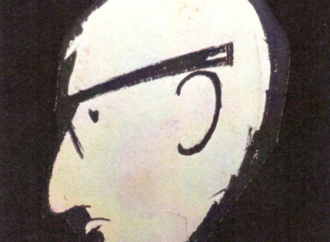Over recent years Iran’s political-social environment has undergone a considerable transformation in the relationship between the nation and the ruling system. This is a new chapter in the life of the Islamic Republic. This process can perhaps best be described as an “emotional divorce” of the nation. In practice, it manifests as a lack of political and social participation, increased civil disobedience, violent upheaval and social unrest.
The gulf between the nation and the ruling system is profound. In the 2020 parliamentary elections, 81 percent of Iranians did not vote, even though Iran’s supreme leader Ayatollah Ali Khamenei urged the nation to participate in the election “out of duty to their country even if they do not favour him.” A recent survey estimates that 77% of the population will not vote in the upcoming presidential election.
National apathy and anger toward the regime – and a possible boycott of upcoming elections – have triggered a heated debate among political elites. Principalists, the regime’s hardliners, believe that the poor performance of the Rouhani government has played a significant role in creating the situation. However, Moderates and Reformists, those who advocate normalization with the United States and domestic political reform, blame the actions of the Shūrā-ye Negahbān (Guardian Council) – the ultraconservative body that is charged with supervising elections and approving of candidates for the President and the Majlis (the parliament) – for the discontent, citing its widespread disqualification of reformist candidates (often highlighting their lack of appropriate religiosity as a pretext). However, the reality is more complex.
There is an obvious contradiction between the authoritarian structure of the Iranian regime and popular confidence in the value of elections or public political participation.
First, there is an obvious contradiction between the authoritarian structure of the Iranian regime or popular confidence in the value of elections and public political participation. The roles played by two non-democratic bodies: the Velayat-e-Faqih (the Guardianship of the Islamic Jurist) and the Shūrā-ye Negahbān have expanded, recently, at the expense of democratic institutions and culture.
Second, the poor performance of President Hassan Rouhani’s ‘moderate’ government – particularly concerning the economy – has been hugely disappointing to its ideological backers. Moreover, the President’s reluctance to use his power to resist hardline social policies of the conservative faction or improve the country’s political and social situation has further diminished popular belief that any political change can come through the ballot box.
This loss of public faith has also been fueled by various internal conflicts among Conservatives, Moderates (aligned with Rouhani) and Reformists (aligned with former president Khatami). All sides have been engaged in a series of revelations against each other, highlighting one another’s corruption, election interference, or roles in suppressing peaceful protesters. Thus, it is likely that the low turnout of the 2020 parliamentary elections will become the new norm. Indeed, a popular chant has shown the public impatience with all parties: “reformists, principlists, the game is over.”
Third, the 2018 bloody crackdown and the extremely violent repression of peaceful protests by the regime’s security forces have further deteriorated the legitimacy of the ruling system. For instance, in November 2018, when the sudden increase in fuel price provoked nationwide riots, the regime responded harshly, killing some 1,500 people, according to human rights watchdogs. Since then, the demand for a change in leadership has been on the rise. Not surprisingly, the latest survey conducted by GAMAAN shows that 79.4% of Iranians want regime change.
Another issue is the increase in bloody clashes between the Islamic Revolutionary Guards Corps (IRGC) paramilitary forces and the ethnic minorities (Kurds, Arabs and Balochis). The systematically killing of Kurdish Kolbars in Kurdistan, the murder of Balochi Sokhtbars in Sistan and Baluchistan, and the killing of Arabs in Khuzestan have greatly contributed to the ever-increasing anger of these ethnic minorities towards the ruling system and added to their reluctance to participate in the elections. The data compiled by the Kurdistan Human Rights Network (KHRN)suggest that in 2020, at least 52 Kurdish Kolbars were killed, and Iranian security forces have injured 147. According to the Baloch Human Rights Council, an organization dedicated to defending the rights of the people of Baluchistan, the IRGC forces have killed more than 50 Sokhtbars in 2020 and 40 Sokhtbars in 2021.
Fourth is the regime’s routine use of deception. The most prominent recent example of this is the shooting down of the Ukrainian Airlines flight PS-752 in January 2020, which resulted in the killing of 176 passengers. According to the Ukrainian National Defense and Security Council, the plane was intentionally shot down by the IRGC to “prevent a cycle of military escalation with the United States.” For almost one week, the IRGC denied that a missile strike brought down the jetliner. After days of international pressure and when western intelligence provided evidence of missile attack, the regime has admitted its military made a “mistake” in “unintentionally” shooting down the plane. This acknowledgement was a huge embarrassment for the regime and was considered a serious betrayal of the public trust.
Similarly, concerning the coronavirus pandemic, the regime’s lies have cost lives and caused anger. Not only has Tehran failed to protect the population through enforcing appropriate measures (it has already cost 70,000 lives) it has hampered their ability to protect themselves by hiding the extent and severity of the crisis and by withholding critical information. As one journalist put it, the country is essentially experiencing a “crisis of competence,” a growing sense among citizens that the regime is not capable of handling crises. (Even worse are the reports that corrupt leaders in charge of overseeing state funds are importing Pfizer vaccine using public funds and resources and selling them in the black market.)
With that being said, the question that arises is surrounding the regime’s remaining options to attract voters. The fact is that the regime has only a few options. One option to appease public anger could be to improve the country’s economic situation. But given the U.S. sanctions and the proximity of the elections, there is little prospect for success on this front.
Of course, the regime could always actually begin acting like the democracy it claims to be and guarantee free and fair elections where citizens could vote for candidates who represent their interests rather than the interest of religious and security elites. It could also nominate young political figures bringing fresh ideas and get the country out of its current impasse.
However, the most likely path is to do nothing and resort to the same old tactics of manipulating turnout numbers and using propaganda. However, while this may convince some in the outside world that most of the population participated in the election, it will do nothing to help the regime’s stability in the long run.










